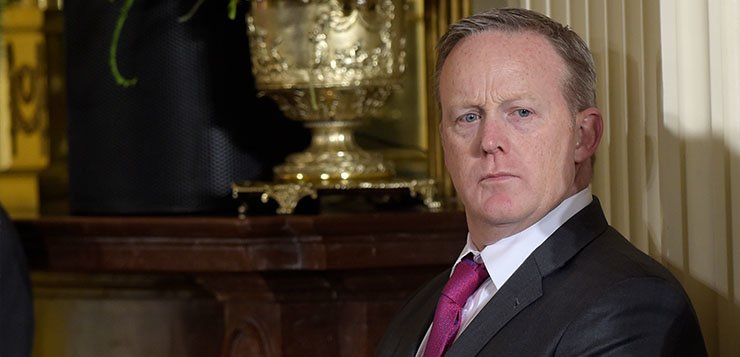The U.S. public has been spoon fed information from the White House for over 85 years since the days of Franklin D. Roosevelt’s appointment of the very first White House Press Secretary, Stephen Early. It is a tradition that has remained constant through each presidency.
However, with the recent remarks threatening the very existence of the daily press briefings from President Donald Trump, the days of having an open wire to the White House may soon be gone or restricted.
The remarks stem from the growing tension between President Trump and growing concern of what happens behind closed doors. As Trump continues to be investigated for communication with the Russians, along with the firing of former FBI Director James Comey, the press have focused in on Trump. In response, Trump has threatened to do away with the daily press briefings following the mistakes from current White House Press Secretary Sean Spicer.
As questioning from the press has kept those in the White House on their toes, this threat should not be taken lightly. Having an open and free media within the White House has proved valuable and necessary in times of confusion.
Trump’s restrictions center around a controlled environment the media is supposed to uphold. However, some of the threats from Trump would make the White House even more protected from the White House’s press — a platform that is supposed to hold those accountable for any type of wrongdoing.
After different stories and reasonings were given from Trump and Spicer regarding the Comey firing and details regarding the Russian investigation, Trump took to Twitter:
“Maybe the best thing to do would be to cancel all future ‘press briefings’ and hand out written responses for the sake of accuracy????” he said.
If Trump were to make this change to the daily press briefings, no longer would the press be able to hold him accountable. He would not be allowed to be questioned. There would be no type of responsibility to be held from the White House.
“The briefings don’t belong to the president and they don’t belong to the press. They belong to the American people,” journalism professor Bruce Evensen said. “Members of the press and the president have an obligation to serve citizens with news worth knowing. The public must insist on it and hold both accountable. His media people say one thing, he says another. A lot of this is unforced errors.”
The daily press briefings are essential to the American public. Without a free press, there is no truth. As Trump continues to be investigated, this is an attack on the press, which, ultimately, is an attack on the American citizens. However, as the White House continues to fumble in these daily press briefings, a wound has been opened. The press is there to continue to widen it, as it should.
“In general press briefings are a way for the administration to get information that it wants out to the public, and to give quick official responses to various issues,” political science professor Joseph Mello said. “The problem for Spicer is that he has zero credibility anymore, due to his boss’ fuzzy relationship with the truth. When he comes out to issue a statement journalists often disregard it because they so often turn out to be either lies, or the story changes later.”
The ultimate goal for daily press briefings is to channel in on resources the White House has and presents in cooperation with press corps. For the most part, it is a tool that allows everyday citizens to receive some sort of statement or information provided by the White House and gathered by the media. The press is a watchdog that is a necessity for the public.
The press should continue having the power to question in order to clear any misconceptions. Without the press, no one would hold accountable the White House or even the president for any possible wrongdoings.
“It would remove a check on power that has played a central part in what has made the American free press a model for developing democracies across the world,” Nick Albano, political science major and senior, said. “Daily press briefings allow for two things. The first being it creates a space in which the White House can spread its message to the American people. The second being it creates a space in which Americans, represented by the press corps, can ask questions of their president. The loss of daily press briefings would signal the end to a central pillar of public accountability towards our executive office.”


